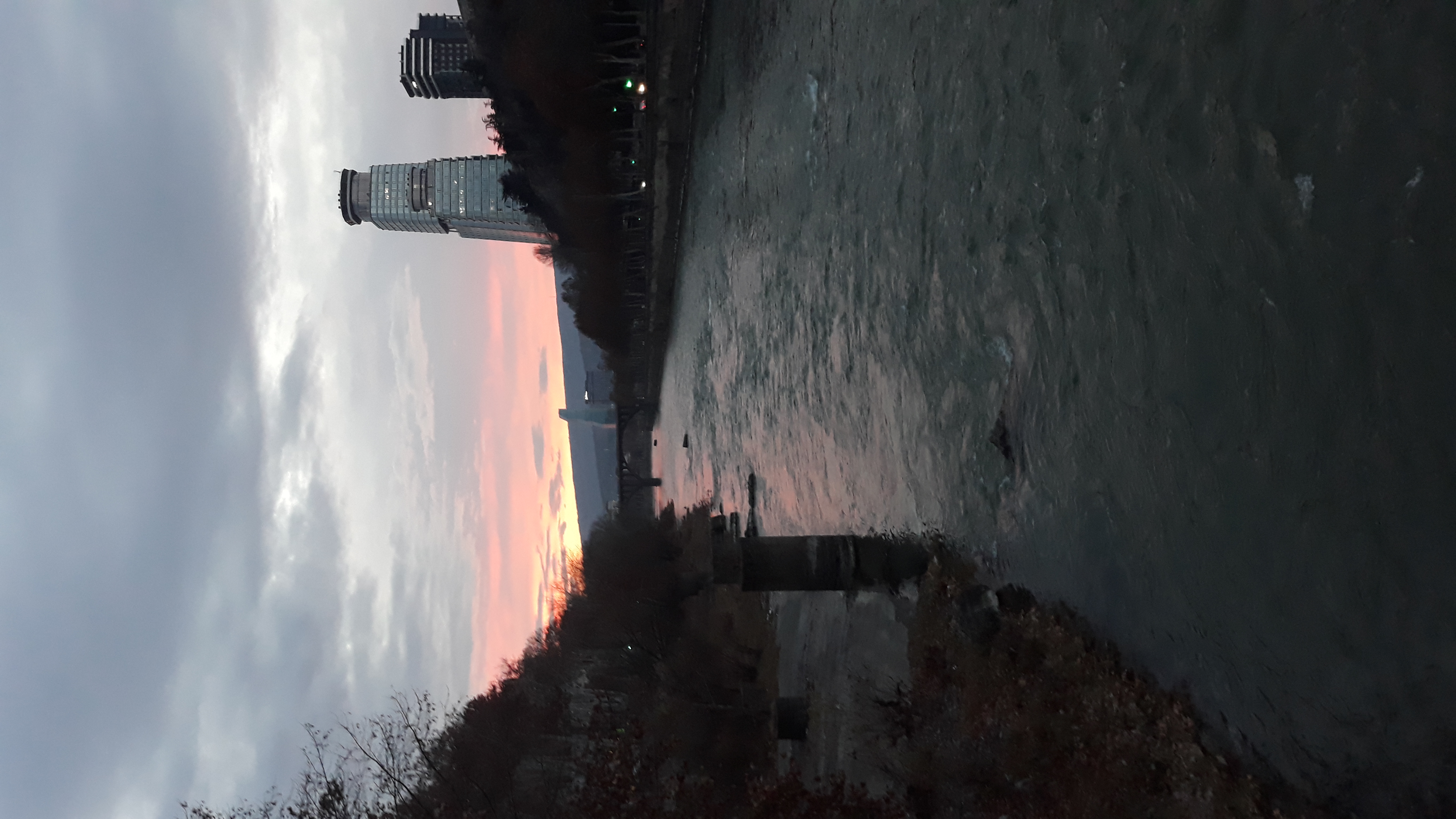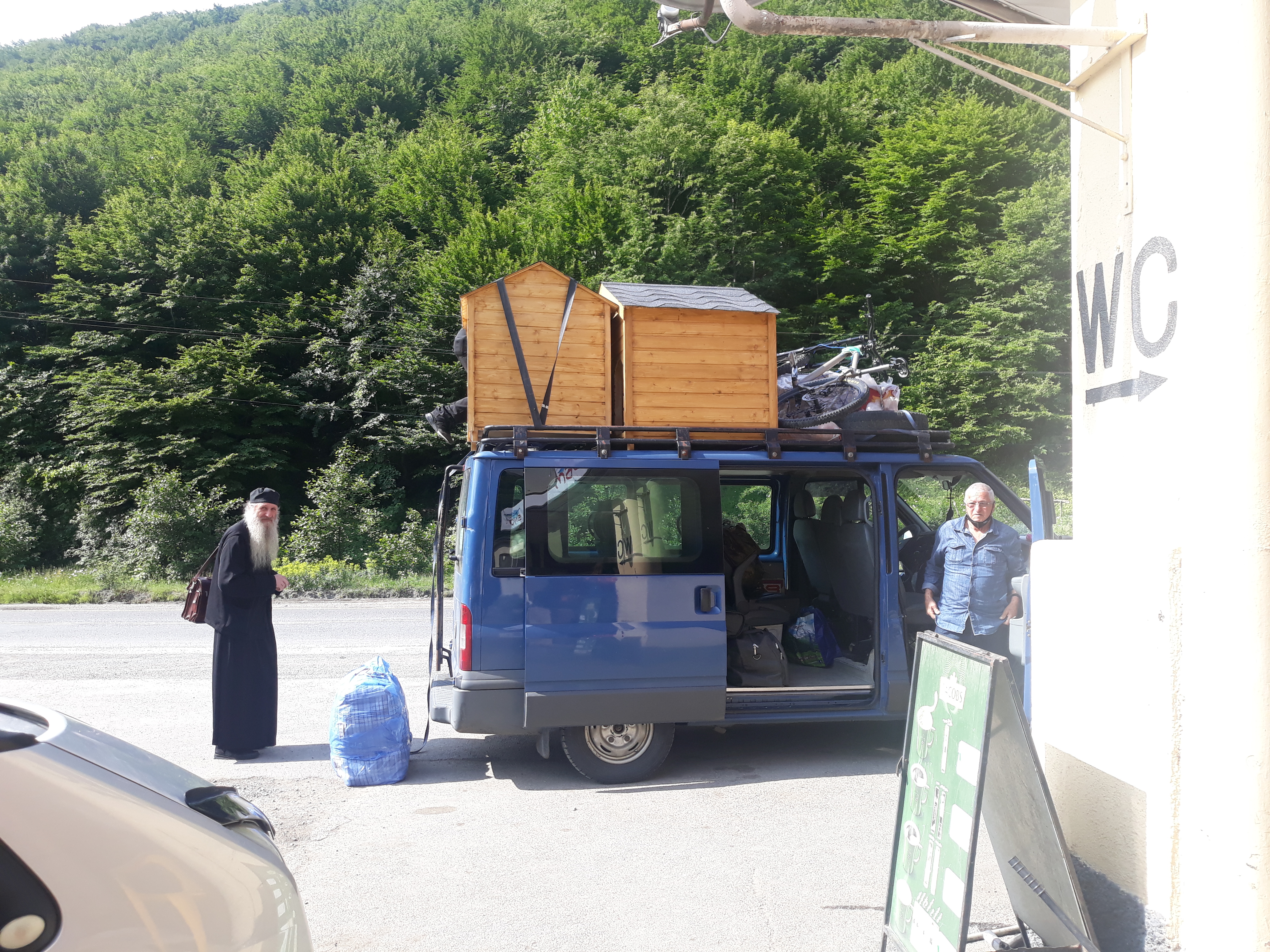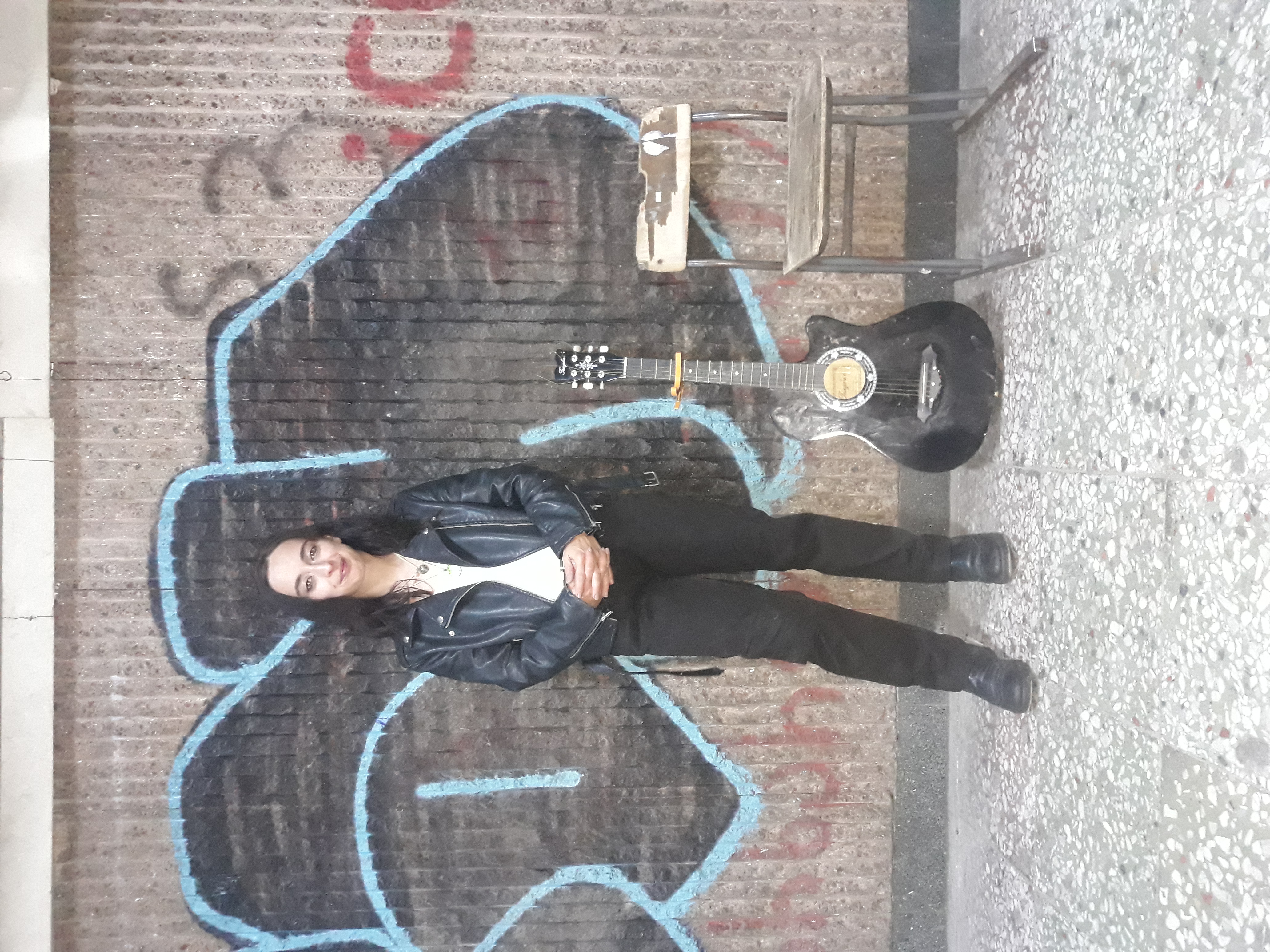2 Jan 2022

Tbilisi, 2/1/22
It has been quite a night shift in Tbilisi club scene: as the day shifts into a recollection of vivid, rich, and passionate events I find it difficult to contain the wholeness of the past hours.
Yet the highlight of the day was about to arrive.
While on the way back from Mtkvarze, this morning at about 10: I am already in Dry Bridge after a infinite stroll, carrying shopping bags straight out of Station Square: a rave without a small grocery hunt at the bazaar next to the clubs cannot be complete, nor ignore.
I am finally at Dry Bridge;
A man craftily deformed: crushed nose, his walk crippled by the winters, clear blue eyes, teeth less, yet lucid and clean.
- Excuse me! He stops me all of the sudden
- What time is it? He politely asks.
In a georgiano sgangherato I reply: he understands me with a smile, he stops me: for a second I had a strange fear, an annoyance, yet I decide to follow his steps.
- Where are you from? He asks with a pristine toothless accent
- Iran?
- Ara, I say no.
- Turkey?
- Ara, Ara, Ara I keep repeating playfully
- Arab? He asks me with eager curiosity
I keep insisting no: I am a local I explain: and you?
His eyes start to shine from a deep sadness, from a deep memory: Azerbajian, like a child he answers.
He smiles. He look at his bag. He takes out a small chocolate. He hands it to me.
Happy New Year! He says
Happy New Year to you too.
Again smiles.
Goodbyes.
Read More
24 Nov 2021

Georgia, 2018 - ongoing
To meditate refers to the act of measuring with the mind: a self contained cycle in which the ideas, opinions, fantasies generated, filtered and pondered by our mind are in constant movement: some slowly crawl deep into our unconscious to be chaotically disposed in dreams, others vanish in a memory void, others persecute us until we take action.
Meditation thus can be conceived, in other words, as a re alignment of our inner state: an act of strength that lead us to clarity.
According to the Tao clarity can be achieved only if we remain quiet in the presence of chaos, only by enduring the disorder around us, by remaining tranquil, is possible to learn to gradually let the muddy waters to settle, only then the proper answers are revealed.
In this regard, in a process of revelations and practices of different methods of meditation the Marshrutkas of post soviet Georgia appeared as the right candidate to prove Lao Tzu sayings.
On the formal level Marshrutkas are part of an intricate transportation network: highly organized, with a fairly float of vehicles in acceptable shape, decentralized, easily available, cheap, democratic, in continuous movement, that pales down the Georgian railway system.
A Marshrutka can take a traveler virtually anywhere: they represent the first line of connection towards smaller hubs scattered around the country, the ideal mean to a last minute decision.
On a more concrete level Marshrutka are a non place of extreme adrenaline: drivers are often sleep deprived, overworked, reckless individuals who in a lazy attempt to fulfill their religious duties, their desire of forgiveness in the eventuality of a fatality, and the desire of protection and good luck, cover the dashboard of their cars in a parade of stickers, and figures depicting the cross, saints, Madonne, and Jesus.
Seats are assigned by a precise distribution: women and children often on the first row of seat. Poor clergy men, younger women, and close friends, or relative of the driver, usually seat next to him in which are probably the most comfortable seats. The rest of the population is scattered to the back, often in random order; the worst seats are the middle ones at the end of the car and the ones by the window on top of the wheels, individual seats are golden, sharing the space with someone sitting next to pushes the limit of patience and tolerance: cheap perfumes, body odors, food aromas, the endemic smells of the car, it all compose an odorific collage that completes the inner geography of the car.
A Marshrutka is not only a people mover but it also serves as an unofficial courier for the most imaginative minds: small packages, puppies, tombstones, building materials, gas canisters, car parts, bikes, or even a dog house: as long as there is space and imagination there will be the possibility to sending across the country anything: the driver acts as a bona fide delivery man for a fee.
Georgia does not shine for the presence of educated and attentive drivers, on the contrary their roads are instead a competition ground of small egos with old, half modified, half wrecked cars trying to flex in front other small egos with newer, faster, shinier cars, transforming the traffic in a sort of driving amusement park, a macho playground of carefree driving.
Although Georgia is not the only country in which traffic rules do not matter, its dangerous driving is to be included on the list of the unofficial prides of the nation along big hairy bellies.
An experienced Marshrutka driver will try to navigate this scenario by driving in its own style: a fast, smooth, continuous driving: he avoids obstacles, he overtakes everything in front of him. He avoids and hopes to be avoided.
A less experienced and less responsible Marshrutka driver will multitask: attentive on his phone, on his conversation with the copilot, attentive on the road, skillful and lucky enough to react at the very last minute to dangerous situations, his rides are disconnected, bumpy and stressful.
A criminal Marshrutka driver is often younger by few decades compare to his colleagues, he projects a mixture of frustration and arrogance in his driving style, resulting in a complete disrespect for the passengers: the road, he believes, belongs to the fittest driver and will do whatever it is in his power to maintain the status quo of his ride: he will race whoever will try to overtake him, he will tailgate whoever dared to overtake him or whoever is not willing to be overtaken, he will insult anyone that interferes in his driving.
This three common categories have one thing in common: the ability to stop anywhere along the road, be it a highway or a normal road, to pick up a standing last minute passenger who can fill an empty seat or to drop a passenger who requested a sudden stop.
Passengers on a Marshrutka are a procession of uninteresting human faces: few foreigners, many vagabonds without luggage, old ladies that seem to appear and disappear from thin air, middle age men, single mothers with children, young women on their way to their lover or on their way from them, few students, rarely a couple.
Who can afford it prefers to take a shared taxi (not less dangerous but perhaps more comfortable).
The trip is often silent, not many people talk to each other, everyone is concentrate into themselves, some are on the phone, some manage to sleep, to listen to music, some seem to meditate, some manage to smoke.
The trip rarely last less or more than the designated hours, it follows a rigid schedule, pre programmed stops: for refreshment, or petrol, or smoking (smoking happens in any case, at any stop, in any circumstance).
A Marshrutka never leaves a passenger behind: we are sheeps.
Often music is part of the trip: from a mix of neo melodic Russian dance folk pop songs to a random selection of poorly made remix of poorly made remixes of unkillable commercial tunes from around the world.
More Zen Marshrutka will avoid playing any music resulting in a trip filled with natural noises, engine rumors, wind, rain (if there's any), traffic cacophonies of sorts. At night lights of bright blue, or green, or red color, pollute the inside of the car.
A Marshrutka in this regard represents the muddy chaos, the disorder, the annoyance of a situation in which our personal actions are limited to a small and not very comfortable space, immerged in an adrenaline induced ride, surrounded by an alienating group of fellow passengers, cacophonies, our thoughts, our fears, our desires.
There is not much to do in a Marshrutka but to wait: reading provokes nausea, phone connections is not always guaranteed, sleeping rarely can happen during the whole duration of the trip, admiring the panorama last until the ugliness of the road starts to pour out.
To meditate, remains perhaps, the only sane option, and the greatest exercise to keep the feet together once the final stop is safely reached.
Read More
2 Aug 2021

Tbilisi, 28 of July, 2021
It all start after the rain calms down.
The day is not yet lost to the apathy of the summer days: movies are too long to marathon on, books induce bulimia, and music deserves a break.
Ahead of my intentions lies Mtasminda, the sacred mountain overlooking Tbilisi.
I find it difficult to describe what Mtasminda is, at least to myself. Apart from a constant and comfortable presence of the TV tower anchored on its summit, perennially lit in technicolor at night, or the soviet Ferry Wheel with its saturated lights. Mtasminda it is connecting mountain, fully walkable. It gives the opportunity to admire, pity, reflect on the city’s transformations, its health, or more simply its state of being.
The route to the top on a summer day is pruned of human life: a shy couple, a lone man listening to music, the traffic noise is quasi non existent, the air is clean, the smell of summer shocks me from my apathy, the city feels more digestible, more accessible.
Once reached the top, in order to continue my stroll towards Narikala, is necessary to access the Park: a demodé institution with little to offer but Potemkin scenery and entertainment. Its ground is covered by steps of Arabs, and eastern European tourist.
There is nothing for me there, I keep walking, the routes signs appears finally towards Narikala Fortress.
Read More
22 Jun 2021
Svaneti, 11-18 June, 2021
An ancestral Svan punishment consisted to hang a roughly round shaped flat stone to the neck of whoever was found guilty of a common crime. This small piece of trivia might not appear utterly interesting, yet I found myself imaging being one of those ancient culprits, perhaps wondering from village to village. The crime itself was not well defined, however the stone was a heavy thought that kept hanging on my neck.
Wandering the hiking trails that connect Mestia to Ushguli made me raise some questions regarding the state of Georgia in the collective imaginary, and specially in my own imaginary.
Svaneti spikes as one of the main cultural regions of Georgia: it has own language, its own rules, its own merits, its difficult character, its own deserved and clear distinction from the rest: it recently jumped into a whirlpool of mass tourism, of adaptation and promotion of its heritage.
Heavily hit by the pandemic, the region remains today in a sort of suspension.
Read More
1 Apr 2021
Tbilisi, 19 of January, 2021
The beer, according to the bold confession of the old lady, was expired: it was not possible to buy it: the few remaining items in the fridge were more similar to forgotten scraps of a minimarket completely covered by winter ivy.
Winter days are longer: as the night gets shorter the cold under the gray sky paralyze every movement of the body.
A constant question - almost as it were a lazy but heavy charged cloud – gravitates around on how to capture the social reality of a country which triggers deep compassionate feelings: feelings that gather all the elements that equate distress, decline, entrapment, sadness: from which angle can we recover those elements, or better; those detail that compose and construct a sort of stage.
Read More


